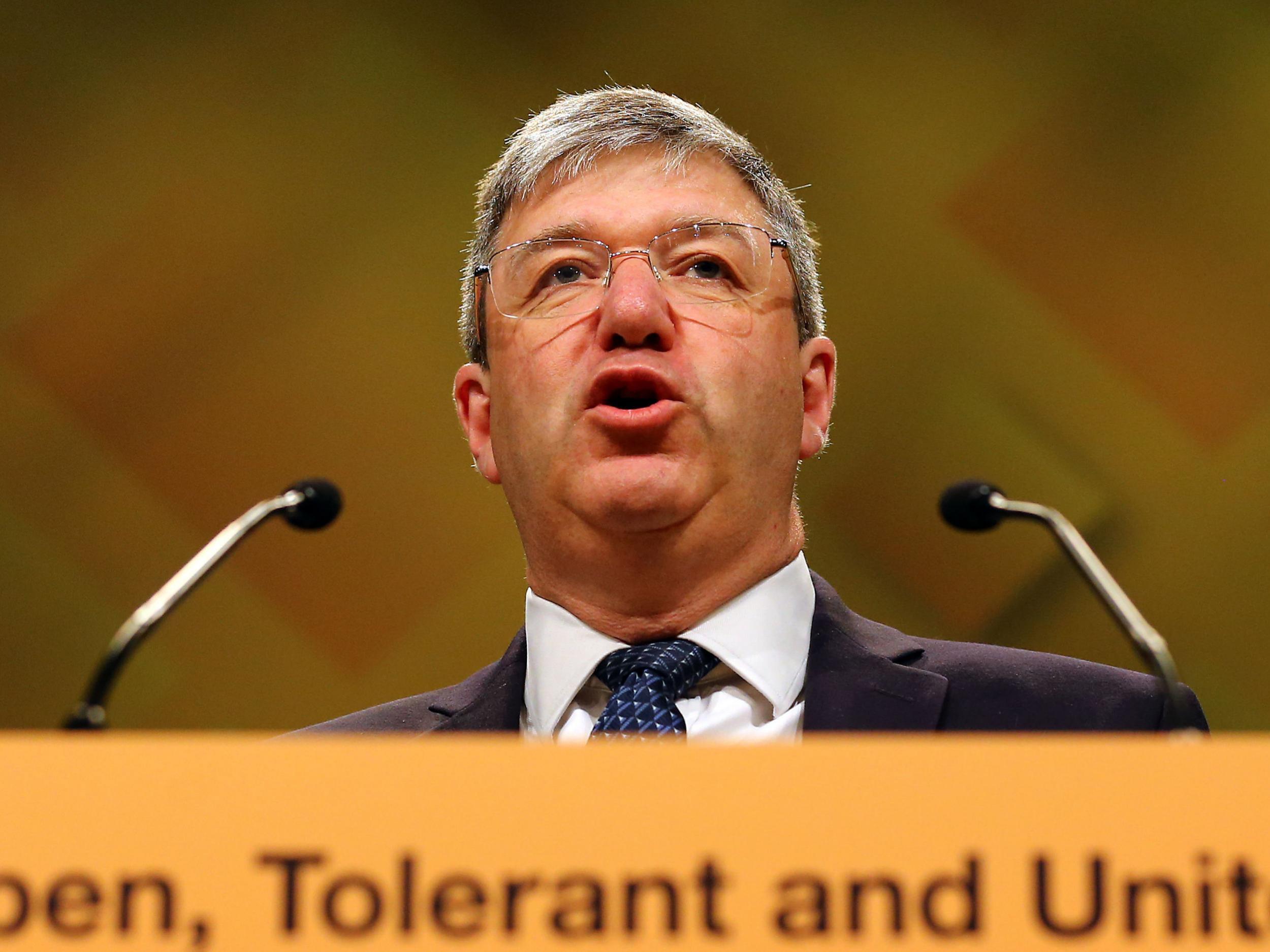Liberal Democrats risk declining into irrelevance after Brexit, admits senior MP
Chief whip Alistair Carmichael says party must be ‘radical and relevant on the bread-and-butter issues’ to counter the danger

Your support helps us to tell the story
From reproductive rights to climate change to Big Tech, The Independent is on the ground when the story is developing. Whether it's investigating the financials of Elon Musk's pro-Trump PAC or producing our latest documentary, 'The A Word', which shines a light on the American women fighting for reproductive rights, we know how important it is to parse out the facts from the messaging.
At such a critical moment in US history, we need reporters on the ground. Your donation allows us to keep sending journalists to speak to both sides of the story.
The Independent is trusted by Americans across the entire political spectrum. And unlike many other quality news outlets, we choose not to lock Americans out of our reporting and analysis with paywalls. We believe quality journalism should be available to everyone, paid for by those who can afford it.
Your support makes all the difference.A senior Liberal Democrat has admitted there is “a risk” the party will fall into irrelevance after Brexit, if its appeal does not extend to “bread-and-butter issues” beyond opposition to leaving the EU.
Alistair Carmichael, the party’s chief whip and a former Secretary of State for Scotland, added that it needed to “break out of the silos of the 52 and the 48”.
He was asked whether, having positioned themselves as “Ukip for Remainers”, as it was put by a commentator earlier this week, the Lib Dems might suffer after March 2019 when the UK is set to exit the bloc.
He told The Independent: “That’s a risk, shall we say, and I think it’s a risk to which we are all alive.
“That’s why if you look at what we have done in the last few weeks, if you saw the way Vince Cable responded to Carillion – the collapse – if you saw the education policy that Layla Moran has published as our education spokesperson in the last few weeks, then you can see that the antidote to that risk is for us to construct an agenda that is radical and relevant on the bread-and-butter issues.”
He added: “‘Ukip for Remainers’ is … pithy, but it’s somebody else defining us. It’s for us as a party to define our own position and to remind people that there’s more to being a Liberal Democrat than being pro-European.”
Following the collapse of government contractor Carillion, Mr Cable argued against bailing out the company, saying shareholders and creditors should bear the cost of failure rather than taxpayers.
In his spring conference speech last weekend, he said leaving the EU “borders on extreme recklessness” and complained that “only our Liberal Democrat team … are making that argument in Parliament”.
In Southport, Mr Cable – who wrested back his Twickenham seat last summer, having lost it in 2015 – did branch out into “bread-and-butter” topics like education and the NHS, particularly mental health.
He also pledged a “dedicated NHS and social care tax” to support the country’s most popular institution.
The party’s opposition to Conservative custodianship of these services is not new, but at the beginning of March only 7 per cent of voters told YouGov they would back the Lib Dems if a general election were held the next day – down one point from June last year.
With opinion polls showing the country still split down the middle on Brexit, according to analysis by election guru John Curtice, Mr Carmichael agreed that focussing a flagship policy on only half the electorate “possibly does” hamper the Lib Dems, “on one view”.
Speaking at a launch event for the party’s local election campaign in Camden, north London, he added: “That is, I’m afraid, the consequence of living in a divided society, which we still are 18 months-plus on from the referendum.
“We do need to break out of the silos of the 52 and the 48, but that issue remains the dominant one and you have to be upfront, in my view, with the people about where you stand on it.
“Even amongst those who voted to leave, there are quite a significant number of people who still want to see us in the customs union and the single market.”
Join our commenting forum
Join thought-provoking conversations, follow other Independent readers and see their replies
Comments